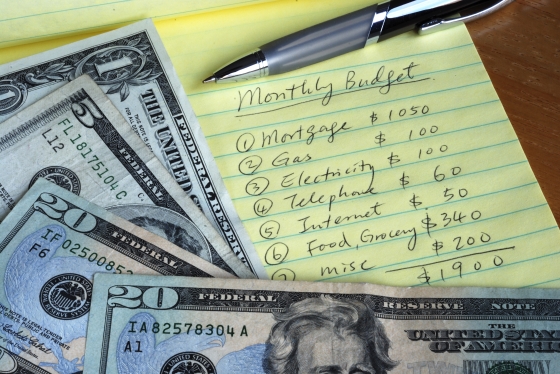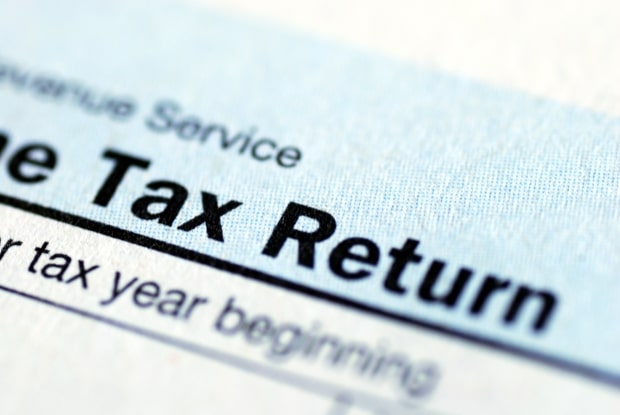Tips For Simplifying Your Household Budget
Building a household budget and then sticking to it isn’t an easy thing to do. You can spend endless hours writing or typing.
Playing with figures identifying everything going into and out of your account, only to discover after one month it’s gone out the window and all of your hard work was in vain.
We’ve all been there, including me. I made a budget and by the end of the month, it was useless.
I’ve spent long nights making spreadsheets with plenty of fancy color coordination. I’ve also jotted down plenty of information on a big sheet of paper so I wouldn’t miss anything, but I still ended up making big mistakes.
It took me many attempts, but I was finally able to do it. I was able to come up with a household budget that works and we’re able to stick with.
Staying on budget is allowing us to pay down monthly debts without stretching ourselves too thin, because it isn’t workable or realistic.
The following are my top tips for creating, managing and sticking to a household budget. It will make it possible for you take control without feeling overwhelmed because you have difficult financial goals.
Don’t Guess and Get Organized
Make sure you get every expense and source of income into your budget. It’s important little items aren’t left out since they can add up very quickly and throw you off by the time you near the end of the month.
Don’t try to rely on your memory and making guesses when it comes to how much money you’ve spent since you will end up forgetting things.
The best thing to do is get several months of bank statements together especially since you might have quarterly payments that won’t show up every month.
If you withdraw any cash, you need to think about where this money is going and make a note of these expenditures as well since it can all add up.
The following are some tips that can help you get your budget under control and ideas for helping you stick with it.
Be Realistic
It’s very important to make a note of everything you’re spending money on.
If you enjoy a caramel macchiato with extra caramel once per week, make sure you make a note of it. There really isn’t any point of lying about your budget.
You would just be lying to yourself and sabotaging your chances of being able to stick with it.
After the budget is completed, you can go back to see if some of the monthly purchases you are making need to be reconsidered.
Keep It Simple
Pick the way that works best for you – using a computer and online resources or good old fashioned paper, calculator and pencil. You probably want to include an eraser as well.
There are tons of free templates you can use that will help you with putting a household budget together and can be downloaded.
You can also use online tools to track it. If you’re overwhelmed or not comfortable doing your budget online then proceed using paper, a calculator and pencil.
It doesn’t make any difference how your household budget’s details are recorded, as long as you understand it.
The more self-explanatory and simpler you can make your household budget, the greater the chances you’ll be able to stick with things.
Look for Ways to Save
There are numerous great ways to save money online and offline. Supermarkets will offer all sorts of deals and offers if they charge more than a competitor. This can be a great way to save – simply check your receipt price online.
Websites such as Groupon and others are also great for fantastic low cost deals. While Plus Voucher Code provides plenty of vouchers for those looking to save a few pounds here or there.
Round Your Expenses Up
If you have a monthly bill for £35.12, on your budget round it up to £36. It will not only make it easier to add the figures up.
It will also mean you get a bit of extra cash automatically left over at the end of the month in your account.
Even if it’s just a couple of pence, if you do it consistently with every payment, you’ll discover it quickly adds up.
Round Your Income Down
By the time the end of the month rolls around, you find a couple of pounds left over in the form of extra savings.
Make sure to add a buffer into your monthly budget to allow yourself some small purchases and for unexpected expenses. For example, add 10% to your regular grocery bill.
That way, even if you have a list for the grocery store, you can still let yourself get that pack of sweets that seems to be calling your name.
If you happen to have an amount of extra money then you can buy yourself something small and know it isn’t going to affect your household budget or break the bank.
If you add a small buffer, it will help to ensure that even if something does happen, you won’t need to pull money out of thin air.
Blended families can be large families especially if both parents are bringing children to the marriage. Click here to get budgeting tricks for big families.






